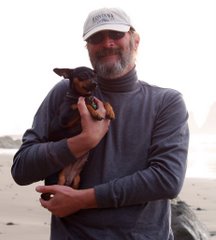Clouds covered the sky in the Missoula valley, but as we climbed Evaro Hill, the clouds dissipated to be replaced by a pale blue sky above Montana's shining mountains. US highway 93 north of Missoula has to be one of the most scenic drives in the country, with the Mission Mountains rising on the east. Snow covered jagged peaks form the eastern horizon for a good seventy-five miles, and this is one of the drives I take when introducing out-of-area friends to western Montana.
Leaving Interstate 90 at exit 96 (96 miles east of the Montana/Idaho line), approximately ten miles west of Missoula, we drove north on US 93, climbing Evaro Hill and leaving the Missoula Valley behind. At the top of Evaro, we entered the Flathead Reservation of the Confederated Salish and Kootenai Tribes. Covering much of Lake County, along with portions of Flathead, Missoula and Sanders Counties, the reservation extends over 1.317 million acres and includes much of Flathead Lake, the largest alpine lake in the US. Created by the Hellgate Treaty of 1855, the reservation became the home of the Bitteroot Salish (Flathead), the Pend d'Oreille, and the Kootenai tribes. In 1910, the reservation was opened to white settlement, and today the population is largely non-indigenous people. Just north of the reservation boundary, we drove under the Animals' Bridge, a conduit designed to keep the suicidal deer and elk from meeting their maker at the hands of a passing Hyundai or Ford. Just north of the "bridge," we passed a sign in English and Salish noting that we were now in the Schley Area.


Cabin in the Schley Area, Flathead Reservation, Montana
The Schley Area is one of my favorite spots to stop for photo-ops, and Ron and I took advantage of having some time in our schedule to stop and shoot the roses, as it were.
From Schley, the highway drops down off Evaro Hill to the first reservation town, Arlee, then just north of Arlee it crosses the Jocko River which it then follows north to the community of Ravalli. Just after crossing the river, we took a right turn onto White Coyote Road, heading toward the Garden of One Thousand Buddhas. The Garden's web site explains the purpose of this bit of Tibetan Buddhism found in western Montana:
The purpose of the Garden is to bring about positive transformation within those who visit, in response to the negativity that abounds in the world today. One thousand hand-cast Buddha statues will be arrayed around the central figure of Yum Chenmo, or the Great Mother, the manifestation of the perfection of wisdom. One thousand stupas, representations of the enlightened mind, will line the outer circle. Each will enshrine an image of the female deity, Tara. Elegantly adorned with native trees and flowers, it is hoped that the Garden of One Thousand Buddhas will instill lasting impressions of peacefulness and compassion.

Yum Chenmo, The Great Mother
Back on the highway, we drove past the Bison Inn in Ravalli and climbed the hill that separates Ravalli from St. Ignatius and the Mission Valley. As you drive north, the National Bison Range is on your left, and the Mission Mountains come into view in an ever widening panorama of snow-capped, shining mountains. If the sky is blue and the sun is shining, as it was for us, new visitors almost invariably gasp as the view ahead becomes more and more filled with jagged peaks rising thousands of feet above. One of the native names for the land we now call Montana was "the land of shining mountains," and it was certainly an apt name in our opinion.
The Mission Mountains as seen from the top of the Ravalli Hill
or are they the Himalayas in Tibet?
Ravalli is where Montana highway 200 coming in from the west merges with 93. We headed west on 200 toward the town of Dixon and what, to my knowledge, is Montana's only herd of Tibetan Yaks. If you've never seen a yak, believe me, they look like giant ambulatory dust mops. I'm told that they are also rather angry beasts, not at all like the ones Hilaire Belloc wrote about in his Bad Child's Book of Beasts, and More Beasts for Worse Children. Belloc's poem "The Yak" has long been one of my favorites.
Isn't there a nickel around here somewhere?
NOTE PLEASE: clicking on any link or photo will open that link in a new window. Double clicking on a photo will not only give you an enlarged view of the photo, but should fill your screen with the image.





No comments:
Post a Comment